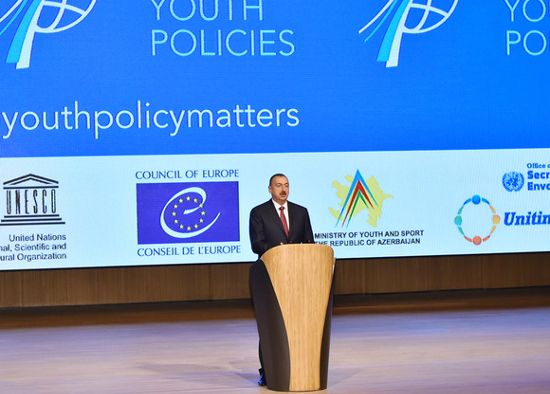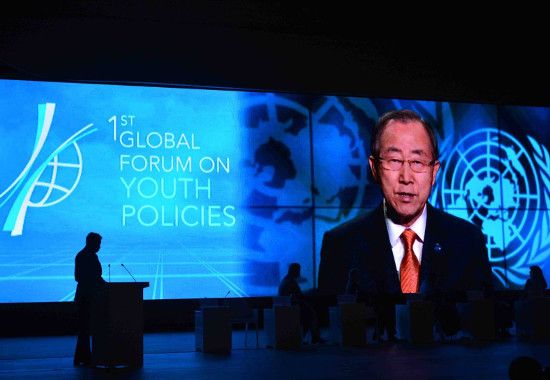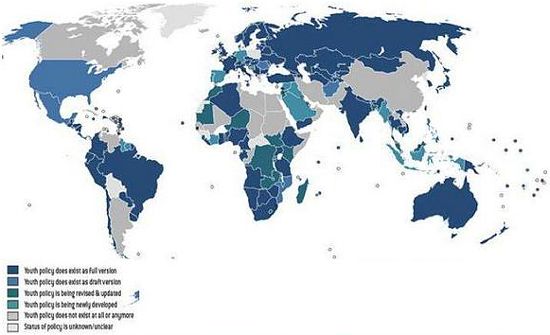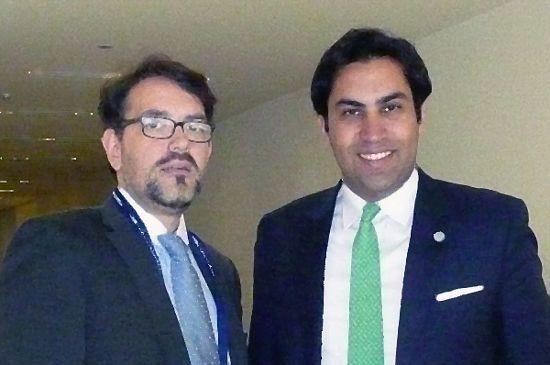Global Forum on Youth Policies held in Baku

The 1st Global Forum on Youth policies was organised by the United Nations and the Council of Europe between October 28 and 30 in Baku, the capital of Azerbaijan. This activity was organised in the context of integrating the issue of youth as a priority for the international community. The UN has appointed for the first time in its history an “Envoy on Youth of the UN Secretary General”. The envoy is Mr Ahmad Alhendawi and two UN agencies are partners - the UNDP, the United Nations Development Programme and UNESCO, the United Nations Educational, Scientific and Cultural Organisation.
Almost 20 years after the international community adopted the World Programme of Action for Youth in 1995 that provided the first global blueprint and framework for youth policies, some 700 participants were in attendance to discuss how to strengthen the youth policies. It was observed that today 122 countries have current youth policies, with another 36 updating theirs.
Leading personalities attended the Forum, starting with the President of the Republic of Azerbaijan, Mr Ilham Aliyev who dedicated a long part of his forty minute speech to the importance of sport for youth generations. The Opening Ceremony saw Ban Ki-moon, Secretary-General of the United Nations intervening in a video message. Magdy Martínez-Solimán, UN Assistant Secretary-General and Director of the Bureau for Policy and Programme Support, UNDP started the opening ceremony, followed by Lalla Aïcha Ben Barka, Assistant Director-General for Social and Human Sciences, UNESCO; Snežana Samardžić-Marković, Director-General of Democracy, Council of Europe; Bashar Hobbi, Global Youth Ambassador, A World At School; Greta Rios, Ollin, Jóvenes en Movimiento (Youth in Motion) addressed the participants focusing on the necessity to have youth policies since many countries now have the largest number of youth they ever had in the history of their country.
The thematic priorities discussed focused on Education, Employment & Entrepreneurship, Environment, Gender Equality, Health, Information & Communication Technologies, Intergenerational Dialogue, Leisure, Participation, Peace & Security, Social Inclusion, Urbanisation & Housing, Volunteerism and Youth & Justice. The main focus was on building, governing and implementing youth policy frameworks. In order to achieve these objectives, the participants concentrated on approaches of the legal frameworks and instruments; maintaining a consistent evidence-base; making youth policy transversal & cross-sectoral; strategies for youth and stakeholders’ participation; political commitments and mobilisation of resources; guiding principals for youth policies; building monitoring and evaluation systems.
The challenges pointed out by the participants are: managing the complexity, tracking, monitoring and evaluating constantly the youth policies, the necessity to connect youth policies with other frameworks and the impact on employment and importance of volunteering to get more from those policies. The key words for many experts are access and financial resources. It was underlined that young people must be considered as partners, agents of change, and beneficiaries of the youth programmes. What they need are investments rather than support and to be included in decision processes especially to adapt the youth policies.
The Forum was also attended by the Director for Educational Services of the International University Sports Federation (FISU), Mr Kole Gjeloshaj.
More about the Forum at www.youthpolicyforum.org
